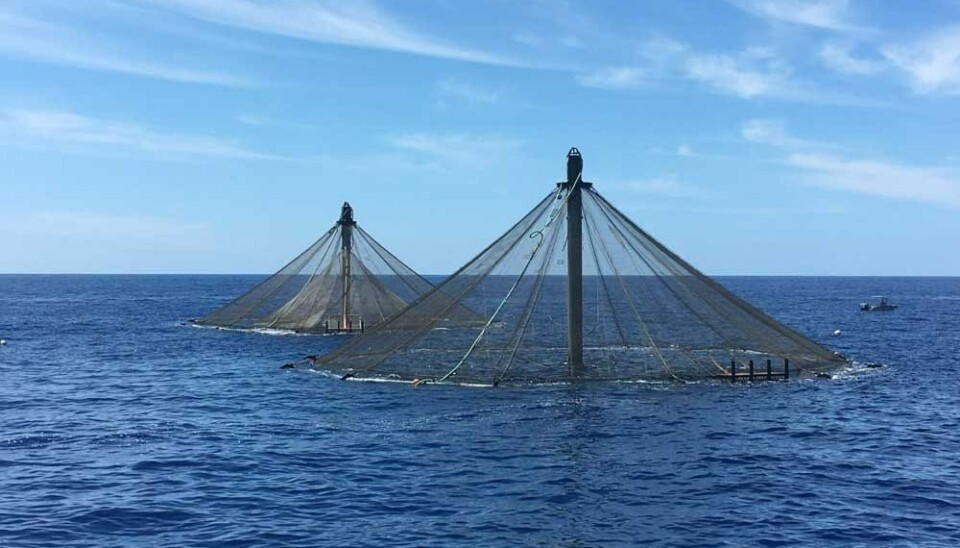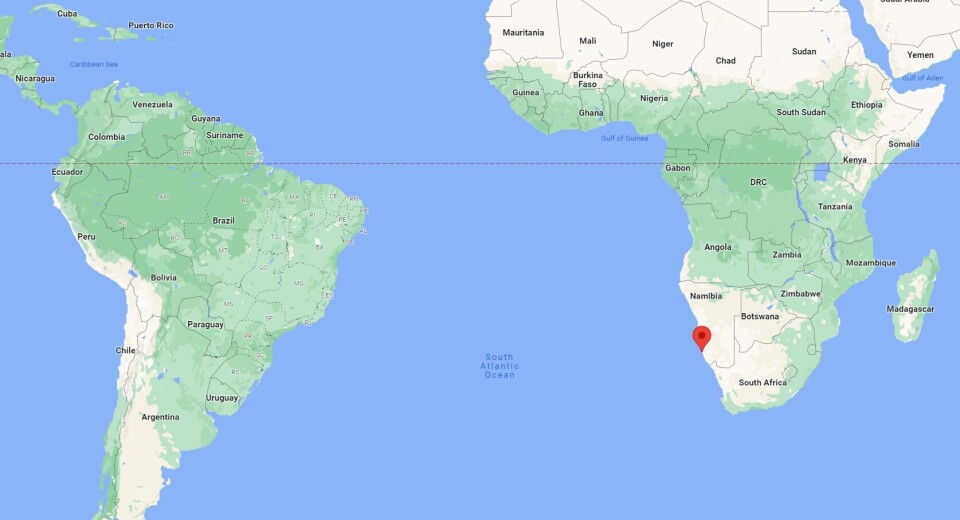
Namibia grants licence for 35,000-tonne offshore salmon farm
Project will use Innovasea submersible pens to avoid wave impacts
United States-based aquaculture supplier Innovasea today announced that it has helped Benguela Blue Aqua Farming secure permits to raise up to 35,000 tonnes of Atlantic salmon in submersible net pens off the coast of Namibia, southwest Africa.
The farm will be located five miles (8km) offshore from the former diamond-mining town of Lüderitz and will use Innovasea’s submersible SeaStation pens, submerged grid infrastructure and proven open ocean technology to raise its fish.
“We’re thrilled to be partnering with Benguela Blue Aqua Farming on this important project to bring open ocean aquaculture to southern Africa,” said Langley Gace, Innovasea’s senior vice president of business development.
“The company has a strong business vision and has worked closely with authorities in Namibia to develop a smart, realistic plan to safely raise healthy fish and create good-paying jobs for the local economy.”
Trial operation
Innovasea’s consulting services helped Benguela Blue obtain the permits required to run a trial operation consisting of up to four SeaStations as well as a permit to raise up to 35,000 tonnes of fish annually.
The area has excellent water conditions and enormous potential, and we’re optimistic that Namibia’s stable governance will encourage other companies to follow our lead to help create a thriving fish farming industry
“We are proud to be the first company to bring sustainable aquafarming to Namibia,” said Johannes Aldrian, co-founder and executive director of Benguela Blue Aqua Farming. “The area has excellent water conditions and enormous potential, and we’re optimistic that Namibia’s stable governance will encourage other companies to follow our lead to help create a thriving fish farming industry.”
Water conditions at the site are ideal for raising salmon, said Innovasea, but strong surface currents and wave heights often above two metres require the use of submersible pens that can be submerged to avoid most of the wave energy.
Robust equipment
The SeaStation has a proven record of surviving hurricanes, typhoons and other significant storms unscathed over the last 28 years, added the Boston company.
Innovasea has designed an inverted conical air dome that can be attached to the spar of the SeaStation (the large vertical pole in the middle of the pen). When the pen is submerged for extended periods, air can be pumped down into the dome to create a pocket of air, allowing the salmon to swim up and fill their swim bladders.
“The open ocean is the future of fish farming and provides a healthier, more natural environment for fish by reducing their exposure to pathogens,” said Gace. “But it requires robust equipment like the SeaStation and our submerged grids to withstand the day-to-day punishment of the sea.”
Benguela Blue Aqua Farming is targeting the second quarter of 2024 to begin operations. Its first harvest is expected to be around 100 tonnes.
In November last year the company secured $20.3 million in a first round of financing and is currently looking for additional investors to help fund the project in Namibia.























































